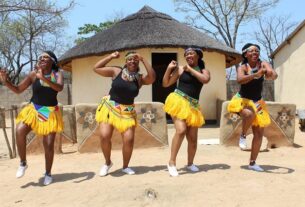THE Ministry of Primary and Secondary Education is working on mechanisms to register virtual schools as a means of complementing online classes being held as a result of the Covid-19 pandemic.
The pandemic has resulted in the closure of schools, affecting 4,6 million learners in primary and secondary schools.
As a result, education has changed dramatically, with the distinctive rise of e-learning, whereby teaching is undertaken remotely and on digital platforms.
In an interview on the sidelines of the launch of the Vision of Primary and Secondary Education (Vopse) at Loreto High School in Silobela yesterday, Minister of Primary and Secondary Education Cain Mathema said with no end in sight of the Covid-19 pandemic, the ministry was looking at formulating measures which will enable the registration of
virtual schools in the country.
Minister Mathema said the country cannot continue to have pupils who don’t go to school.
“We can’t continue having our children not going to school. No, we can’t have a generation that will be affected by this pandemic. So we have laws in the country which allow us to register these public and private schools. But we don’t have such to register virtual schools and we need it. So, as a ministry, we are looking at mechanisms to make it
possible for us to register virtual classes. That is the way to mitigate against the spread of Covid-19,” he said.
Government announced that the country’s schools will remain closed as Covid-19 cases continue to rise.
Minister Mathema urged schools, parents and learners to embrace online learning as Government ponders on the schools reopening date.
“With this sudden shift away from the classroom, the adoption of online learning will continue to persist post-pandemic. Remember we have to deal with this pandemic which is the new normal. The pupils have to attend lessons,” he said.
Minister Mathema said the Competence-Based Curriculum and Vopse require that teaching and learning as well as assessment must lead to the acquiring of knowledge, skills, competences, values, and attitudes that equip learners well for their future and the future of the country.
Skills and competences, he said, must result in the production of quality goods and services.
“Our education must lead to the finding of solutions to challenges within the comminutes if it is to be worth the investment that is put into it,” said Minister Matema.
“An education sector that makes money for the school, the community and the country is what we need. We need to recognise the roles schools are playing in contributing to the economy of the country. We can’t have students who speak good English and go on to look for jobs. Cabinet approved that schools be commercial entities but we don’t want our schools to be engines of slavery. Pupils must not be used as slaves. Children blend what they see and work with professional people.”
He said there is a need to teach pupils so that they remain in charge of the economy.
The minister, who was accompanied by education secretary Mrs Tumisang Thabela, toured various economic projects that are being undertaken at Loreto High School and Anderson High School in Gweru.
The projects include poultry, horticulture and bottled water.-chronicel.cl.zw




